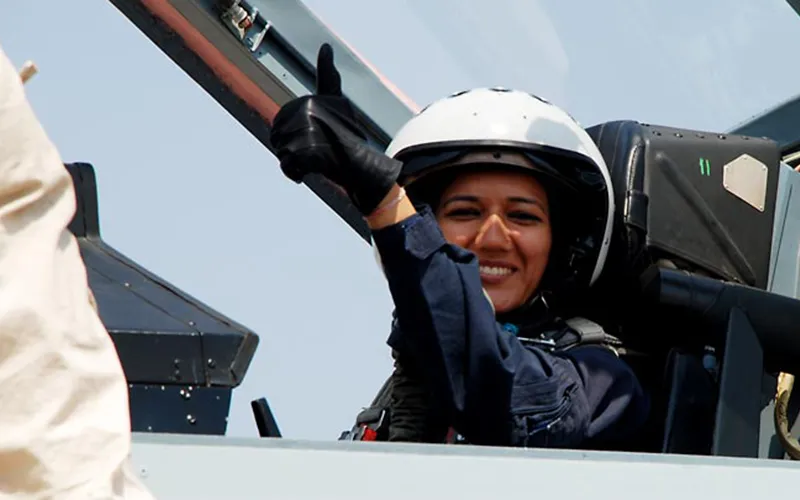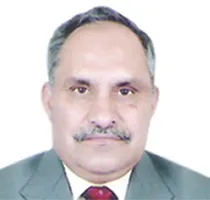-
CENTRES
Progammes & Centres
Location
Even today, the Army continues to be organised on the basis of regional, linguistic, caste and religious affiliations. Nearly 70 years since Netaji Subhas Chandra Bose raised combat units in which personnel from all over India served together, it is time that our Armed Forces seriously consider these issues of regionalism, ethnicity and deployment of women in combat roles.

During the Republic Day Parade, we came face-to-face with the concept of nari shakti in its most magnificent manifestation - that of being in a position of power within the military. We witnessed the historic spectacle of Wing Commander Puja Thakur, a second generation soldier, commanding the tri-service Guard of Honour that was inspected by US President Barack Obama at the Rashtrapati Bhavan, a first for the country since independence.
During the Republic Day parade, we were fortunate to see various contingents that were not only led by women officers but also having women officers from all three services. Apart from this, there was the fascinating Air Force tableau of women pilots flying helicopters, fighter jets and transport aircraft. Prime Minister Narendra Modi certainly needs to be complimented for having ensured that women were the focus of this parade, more so, at a time when India is increasingly confronted by heinous cases of violent crimes against women and children. One could be excused for wondering, why the UPA, with a woman, that too of European descent, as its chairperson, did not take any initiative.
It has been rather unfortunate that the Armed Forces has been dogged by controversies over the past few years, including court cases aplenty, pertaining to the employment of women in the services, whether it is with regard to giving women permanent commissions or allowing them to join combat units. While there may be two opinions over women in combat, keeping in mind the likelihood of violence that they may be subjected too, if captured in battle, there can be no doubt that women, who form half the population of this great country, have every right to look forward to a career in the Armed Forces, as they do in any other field.
The Constitution guarantees them that right and neither cultural mores nor mindsets should stop them from getting their due. Even in the context of service in combat units, there are enough appointments in logistics and administration departments, which ordinarily ensure that women are not required to participate in what is, ubiquitously referred to as, close quarter battle. This is aside from the fact that the Armed Forces' opposition to women officers is odd as the services keep whining about shortages in the officer corps at the junior level which is adversely impacting combat efficiency.
In this context, it is worth remembering that while symbolism is important, there is an urgent need for substantive action and this is not without precedent. Those of us who are even vaguely familiar with our history will be well aware that in July 1942, the Netaji Subhas Chandra Bose's Azad Hind Fauj raised a woman's regiment - the Rani of Jhansi regiment was not only trained and equipped to participate in combat but actually provided the first Guard of Honour to Netaji in Singapore when he became Head of the Provisional Government of India.
Finally, while on the subject of mindsets, it may be worth mentioning that even today, the Army, and especially the infantry, continues to be organised on the basis of regional, linguistic, caste and religious affiliations. This keeps alive outdated concepts such as those of martial races. It is a matter of great pride that Netaji was clear about what was urgently required and ensured that the Indian legion, which fought against the Allied Powers in Europe, and the Azad Hind Fauj, both raised combat units in which personnel from all over India served together, regardless of cultural affinities or religious beliefs. Nearly 70 years on, it is time that our Armed Forces seriously consider these issues of regionalism, ethnicity and deployment of women in combat roles.
(The author, a retired Army officer, is a consultant with Observer Research Foundation)
Courtesy: The Pioneer
The views expressed above belong to the author(s). ORF research and analyses now available on Telegram! Click here to access our curated content — blogs, longforms and interviews.

Brig. Deepak Sinha (Retd.) was Visiting Fellow at ORF. Brig. Sinha is a second-generation paratrooper. During his service, he held varied command, staff and instructional appointments, ...
Read More +